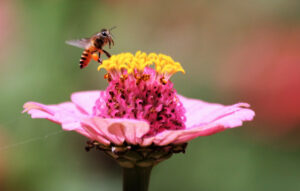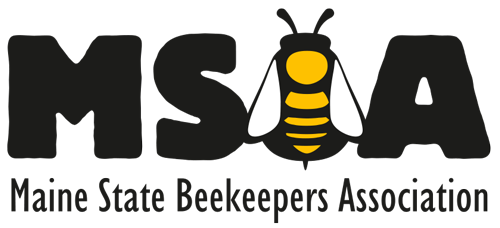
Erin McGregor-Forbes, EAS Certified Master Beekeeper, Co-owner of Overland Apiaries and Director of Finance and Administration at Maine Audubon Society, spoke at the February 8, 2021 meeting on bee health, sustainability and the Sentinel Apiary Program through Bee Informed Partnership.
Maine has a Pollinator Protection Plan which was put in place in 2017.
Maine is ideal for beekeeping with diverse ecosystems, forage, good land and environmental management and clean water, but parasites, viruses, bacteria, fungi, pesticides, climate change and genetic bottlenecks still affect the bees and their survival.
The “Big 3” worries for beekeepers, according to Erin, are Varroa, pesticides and forage.
In 2020 the Sentinel Apiary Program had 76 apiaries enrolled with 394 colonies being sampled throughout the season (April through October). An apiary enrolls at least four (4) colonies up to twelve (12) colonies. These colonies are inspected monthly by the beekeeper including the collection of samples which are sent to and processed by the University of Maryland diagnostic lab for varroa and nosema. The beekeepers are then able to make management decisions based on the data that is received back from the lab.
The data is updated monthly on the Bee Informed Partnership website and can be viewed by anyone.
Fun Fact: The first beginner bee school Erin taught after she received her Master Beekeeper certification was in York County. Shortly after that YCBA was started.

